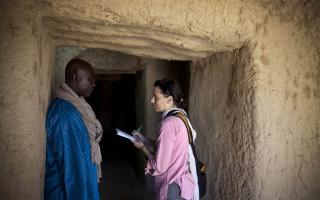In-depth Change Management (Edition 14)
Upon completing the course, participants will have a solid grasp of the essentials of change management — a vital capability as the UN advances major reform agendas such as UN80 and UN 2.0. They will understand the psychology of change and how it shapes staff engagement in times of organizational change. They will develop or refine a change strategy for their project or team, with individual feedback provided at every stage to strengthen their practice. The course also introduces ways to leverage behavioral science for change and shows how change management can be applied to help entities deliver with greater efficiency, effectiveness and impact.
Change management is crucial in enabling reforms and major shifts across the UN system. As the organization progresses with both UN 2.0 and UN80, it will play a key role in supporting the drive for greater efficiency and effectiveness, while ensuring that reforms translate into lasting impact.
UN managers have had to adopt a change leadership role, assessing the impacts of programmes with key stakeholders while assisting their teams in rapidly adjusting their practices in an environment where adaptability and alignment with broader reforms are increasingly expected.
Both line and change managers are essential drivers of cultural shifts and agents of organizational change, whether the change is primarily planned, as in the case of digital transformations, strategic repositioning, seeking buy-in to new initiatives, policies, or culture change, or emergent in response to crises or member states’ demands.
Participants in this course will define change management strategies required at both an individual and team level. Each week, they will develop segments of their strategy and present them as written assignments or presentations to a small peer group.
The course focuses on the mindset and skills of change leaders and the steps involved in developing a change management strategy that prioritizes strong staff engagement. Participants will work on their own change cases and benefit from behavioral insights to generate ideas for change interventions.
On average, participants will require about two half-days of work per week, including a two-hour webinar every Tuesday and a peer session on Thursday. The final week will be dedicated to presentations from participants.
The course benefits from the expertise of UN change practitioners who are part of the UN Lab for Organisational Change and Knowledge (UNLOCK) network and have led complex change processes in UN system organizations, bringing perspectives that are deeply relevant to today’s reform context.
Upon successful completion of this course, participants will
- Have clarity on their change leadership practices and change readiness;
- Understand the drivers of resistance;
- Know how to use insights from behavioural sciences to design change;
- Be able to identify steps and tools necessary to develop their own change strategy;
- Develop an outline of a strategy;
- Understand how to support their staff in managing transitions;
- Have reference points to other change initiatives in the UN context.
This course combines weekly self-study modules with individual assignments, participant case presentations, webinars, forum discussions as well as individual feedback and guidance. During the weekly webinars participants deepen their knowledge of concepts, discuss their application to their work and listen to a real-life application by a UN change practitioner.
Each week the webinar is complemented by an individual assignment, a peer coaching session, or a presentation. The sessions provide the opportunity for each participant to apply the concepts and tools to their change case and get feedback from UN change practitioners. On two occasions each participant will be required to give a brief presentation of their change situation to a small group.
The online forum discussions allow for an exchange with other UN managers in order to facilitate organizational learning across UN entities.
The course requires roughly two half days of work per week.
Upon demand, we are offering special tracks for groups who want to jointly develop a change strategy. Please be in touch to discuss your specific change challenges.
Week 0: Onboarding
- Contracting: making the programme work
Week 1: Mindset of a change leader
- Emotions and resistance;
- Individual change readiness
Week 2: Skills and behaviors of a change leader
- Approaches to change
- Change leadership practices
Week 3: UNLOCK change management model I
- Making a case for change
- Building a guiding coalition
Week 4: UNLOCK change management model II: Developing a strategy
- Change vision
- Change impact analysis
- Capacity building
Week 5: UNLOCK change management model III: Engagement and sustainability
- Communication and engagement strategies
Week 6: Behavioural sciences
- When and how are we ready to change?
- Application of behavioural insights to define actions that may influence behavior
This course is accredited by the Association of Change Management Professionals (ACMP), which means that the course aligns with the ACMP Standard for Change Management © and satisfies a portion of the education requirement for applying and maintaining the Certified Change Management Professional (CCMP™) credential.
This course is geared to line and change managers, change agents and programme and operations staff who are leading change in their field of expertise within the UN and with partners. The course is helpful for staff setting up offices, and those leading or coordinating both complex organizational change as well as implementing organizational changes with their teams. This course is also available for groups to develop together a change strategy at a different price.
The course fee of $1,850 includes all dedicated materials and webinars as well as access to a closed online discussion and at least five instances of personal feedback on participant strategy development.




